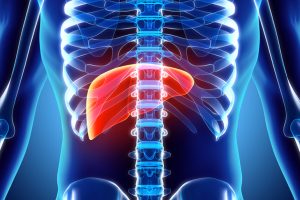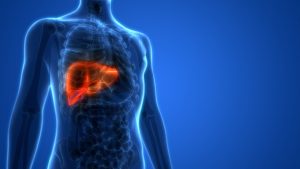Alcohol composes a huge part of many beverages like beer, wine, and liquors. It is the component that gives you such things as boosted confidence, decreased inhibitions, talkativeness, and other effects.
However, your body does not fare well with high doses of alcohol. The more alcohol you consume, the more dangerous it becomes for your body. In fact, if the concentration of alcohol in your blood reaches 0.40 percent, you may go into a coma, or worse, death.
One organ that gets particularly affected by alcohol is the liver. Read on to find out more about the effects of alcohol use on your liver.
What does the liver do?
 The liver is an organ located on top of the stomach, on the upper right hand part of your abdomen. It is part of the digestive system, which extracts nutrients from food and drinks.
The liver is an organ located on top of the stomach, on the upper right hand part of your abdomen. It is part of the digestive system, which extracts nutrients from food and drinks.
The liver acts like a sponge, filtering the blood and removing any toxic substances from it. Alcohol is one of those toxins, and the liver is responsible for clearing it out of your body when you drink.
When you drink in small amounts, your liver can handle the alcohol you consume. If you drink about 14 grams of pure alcohol, which is defined as the alcohol content of one standard “drink”, then your liver will take one hour to detoxify all of that alcohol.
If you drink more, the excess alcohol lingers in your blood, and it will circulate through your body. Once the alcohol reaches your brain, that’s when you begin to feel drunk. The liver cannot work faster or detoxify more alcohol in a shorter time.
What does alcohol do to the liver?
Drinking moderately does not affect the liver negatively. However, if you drink excessively, your liver cells can get damaged. When you constantly drink lots of alcohol, your liver will go through three stages of damage:
- Fatty liver
- Alcoholic hepatitis
- Cirrhosis
It usually takes years of heavy drinking for liver disease to progress this way. However, it does not mean that if you’ve just started drinking heavily, you are not prone to these conditions. Any heavy drinker is at risk of liver damage.
What is fatty liver?
 This condition happens when too much fat accumulates in the cells of the liver. When this happens, your liver will be inflamed, causing scarring. If too much of the liver becomes scarred, you get cirrhosis, which can later cause liver failure.
This condition happens when too much fat accumulates in the cells of the liver. When this happens, your liver will be inflamed, causing scarring. If too much of the liver becomes scarred, you get cirrhosis, which can later cause liver failure.
There are many things that can cause fat to build up in the liver. One of them is consuming too much alcohol. In fact, fatty liver is the first stage of alcohol related liver disease.
Fatty liver often has no noticeable symptoms. Sometimes, though, you may feel discomfort or pain in the upper right side of your abdomen. This may also be accompanied by feeling tired.
The best way to know if you have a fatty liver is to consult your doctor. This condition can be diagnosed in different ways. First of all, your doctor will ask about your medical history and your drinking habits.
Then, he may conduct a physical exam by pressing on your abdomen. He may be able to feel if your liver is enlarged, indicating inflammation. But it’s also possible for your liver to be inflamed without enlargement.
If your doctor can’t tell if you have a fatty liver by a physical exam, he will then order a few blood tests. Most cases of fatty liver are easily diagnosed by blood work showing increased levels of liver enzymes.
If your doctor find out that your liver enzyme levels are high, he will usually order more tests to be done. Although fatty liver is one cause of elevated liver enzymes, it’s not the only one. Additional tests are needed to make sure.
After running blood tests, your doctor may order a CT scan, MRI, ultrasound, or FibroScan. These imaging tests may reveal signs of excess fat or inflammation.
To be absolutely sure, your doctor may also order a liver biopsy. Here, he will insert a needle into your liver and extract a tissue sample. He will give you a local anesthetic beforehand to kill the pain. The tissue sample will then be analyzed for signs of fatty liver or scarring.
What is alcoholic hepatitis?
This is the second stage of alcohol related liver disease. When you already have fatty liver but continue drinking heavily, you may develop alcoholic hepatitis. This condition is characterized by inflammation in many areas of the liver.
Signs of alcoholic hepatitis include:
- Nausea and vomiting
- Loss of appetite
- Tenderness in the abdomen
- Fever
- Fatigue, weakness
In severe cases, here are some additional symptoms:
- Fluid accumulating in the abdomen (ascites)
- Confusion and changes in behavior
- Kidney failure
When you have these symptoms, consult your doctor right away. He will often order the same tests as those for diagnosing fatty liver to find out if you have alcoholic hepatitis.
What is cirrhosis?
Cirrhosis is the last stage of alcohol related liver disease. When you have cirrhosis, large parts of your liver are already covered in scar tissue. This makes it hard for the liver to function properly.
Unfortunately, once you have developed cirrhosis, there is almost no way to reverse the damage. If it’s diagnosed early, though, further damage to the liver can be prevented.
Cirrhosis usually shows no symptoms until the damage is already severe. Here are some of them:
 Fatigue
Fatigue- Bleeding easily
- Loss of appetite
- Swelling in the legs, feet, or ankles (edema)
- Weight loss
- Yellow discoloration in the skin and eyes (jaundice)
- Confusion, drowsiness, slurred speech
- Spiderlike blood vessels on the skin
- Redness in the palms
Consult your doctor right away if you show these symptoms.
How can I prevent liver damage from alcohol?
The best way to take care of your liver is to drink moderately. If you do not take more than one drink per day, you should be fine.
If you already have signs of liver damage, abstinence is your best option. If you’re still in the early stages of alcohol related liver disease, then you can prevent further damage by stopping the intake of alcohol.
